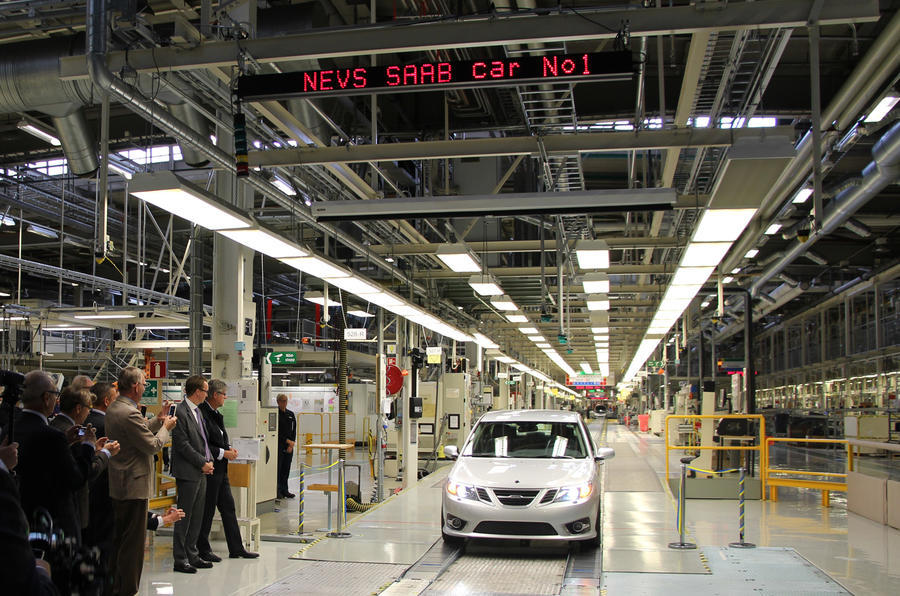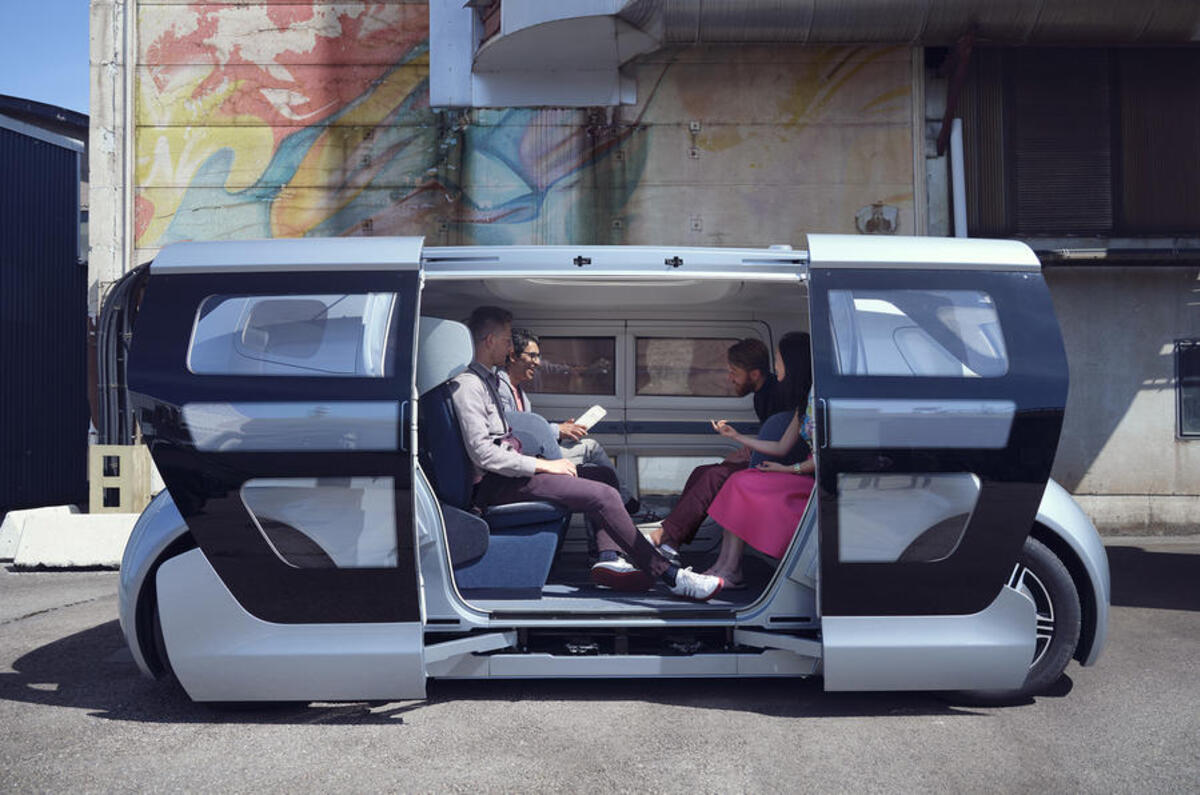A productive future for Saab’s storied factory in Trollhättan, Sweden, will hinge on the success of a six-seat autonomous shuttle.
The Sango has been designed and engineered in Trollhättan by Chinese-owned NEVS (National Electric Vehicle Sweden), which acquired Saab’s main assets when it went out of business in 2012.
The shuttle is scheduled to start trials in Stockholm in late 2021, operating under the SAE level-four classification for self-driving vehicles.
“Sango is designed to compete with private cars, not public transport, and will be a vehicle that people use, rather than own, and has been designed with flexible shared use in mind,” said project chief engineer Anna Haupt.
Although the Sango must undergo several years of trials before it can be fully operational, Haupt is bullish about its production future.
“The potential production of Sango is enormous. We are in a transition now as we move from internal combustion engines to battery-electric vehicles and we also see the switch to mobility services. The total production of mobility vehicles will be huge,” she said.
In the long term, NEVS is looking to Trollhättan as its source of Sango shuttles, but production volume and timings have yet to be disclosed.
Trollhättan has effectively been mothballed since NEVS bought the factory in 2012, with various plans to build electric versions of the Saab 9-3 for sale in China never coming to fruition. A plan for NEVS to mass-produce a solar-charged electric car called the Sion at up to 32,000 units a year for German EV start-up Sono Motors is on hold after the firm experienced financial difficulties during the pandemic.









Join the debate
Add your comment
for crying out loud
so an electric Phoenix platform 9-3 is no longer happening either? I was sure i'd read that was going to replace the electric gm 9-3. Is this shuttle bus any different to all the others we keep reading about? Aren't Westfield doing something like that too? Everything's a complete mess. It's infuriatng that billions have been found to fund NEVS' going around in circles, but nobody would pony up anything for SAAB, who had something actually ready. I am, and always will be, convinced that gm had no intention of SAAB continuing in business
On the nail
Agree entirely. Like most multi nationals, they play a game of chicken with local and national governments. Every time a model needs replacing or a new factory is thought to be desirable they effectively blackmail the authorities for grants, tax incentives , deals etc. They do it again and again every few years. Then finally someone says enough. So they pull out, not a big loss to them as they put little of their own into the plant to start with, leaving local communities decimated.
I wonder when the last time any major manufacturer actually built and equipped a new factory with their own money, without incentives.
What absolute mugs we all are to think this is an acceptable way to do business.